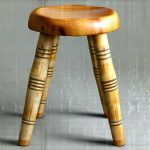It’s a familiar scenario: a weekend filled with delicious food, perhaps celebratory drinks, and good company culminates in…a less-than-ideal digestive experience on Monday morning. Loose stools after indulging are incredibly common, and rarely something to cause immediate alarm. However, understanding why this happens and what steps you can take to ease discomfort is key to navigating those post-celebration days with a little more grace. Often, it’s simply your digestive system reacting to a temporary shift in diet and volume – a perfectly normal response to enjoying life’s pleasures.
This isn’t about deprivation or guilt; it’s about recognizing the connection between what we consume and how our bodies respond. A sudden increase in rich foods, sugary treats, alcohol, caffeine, or even simply larger portions can disrupt the delicate balance of your gut. The good news is that these effects are usually transient, resolving within a few days as your system returns to its routine. This article will explore the common causes behind post-celebratory loose stools, offer practical strategies for managing symptoms, and help you approach future indulgences with mindful awareness – not restrictive anxiety.
Understanding the Digestive Disruption
The digestive system is remarkably adaptable, but it does have limits. A weekend of celebratory eating often involves a significant deviation from your usual dietary patterns. This can throw off several aspects of digestion, leading to looser stools. One major factor is increased fat intake. Rich foods, desserts, and fried items are typically higher in fats than everyday meals. Fats take longer for the body to digest, meaning food stays in the digestive tract longer, potentially causing discomfort and altered bowel movements. Furthermore, excessive sugar consumption can draw water into the intestines via osmosis, contributing to a softer stool consistency.
Alcohol also plays a significant role. It irritates the gastrointestinal lining and interferes with normal digestive processes, particularly nutrient absorption. Many alcoholic beverages are high in sugar as well, compounding the issue. Caffeine, prevalent in coffee, tea, and some sodas, is a stimulant that speeds up intestinal motility – essentially pushing food through your system faster, leaving less time for water absorption and potentially resulting in looser stools. Finally, simply eating larger portions than usual overwhelms the digestive capacity, leading to incomplete digestion and potential discomfort. It’s not necessarily one single factor, but rather a combination of these elements that often creates this post-celebration scenario.
The gut microbiome – the trillions of bacteria residing in your intestines – also plays a crucial role. A sudden shift in diet can disrupt the balance of these beneficial bacteria, leading to temporary digestive upset. While a healthy microbiome is resilient, consistent dietary changes can impact its composition and function. Restoring that balance is part of the recovery process. If you are experiencing ongoing issues, consider follow-up tools to monitor your gut health.
Identifying Potential Culprits
Pinpointing exactly what triggered your loose stools can help you understand how to prevent it in the future. Consider what you ate and drank over the weekend:
- Was there a significant increase in fatty foods?
- How much alcohol did you consume, and what type?
- Did you drink excessive amounts of caffeinated beverages?
- Were your portion sizes larger than usual?
- Did you try any new or unfamiliar foods?
Often, it’s not just one thing but a combination. For example, a rich meal followed by several alcoholic drinks and a late-night sugary dessert is a recipe for digestive distress. Also consider if you have any known food intolerances or sensitivities. Even minor reactions can be amplified when combined with other dietary factors. Self-awareness regarding your body’s response to different foods is invaluable. When feeling anxious about eating, remember how to handle potential triggers.
Hydration & Electrolyte Balance
Loose stools lead to fluid loss, which can contribute to dehydration and fatigue. Replenishing fluids is therefore paramount. Water should be your primary source of hydration, but electrolyte-rich beverages like coconut water or diluted sports drinks (in moderation) can also be helpful. Avoid sugary sodas and juices, as they can further irritate the digestive system.
Here’s a simple hydration plan:
1. Sip small amounts of water throughout the day rather than gulping large quantities at once.
2. Consider adding electrolytes to your water if you experience significant fluid loss or feel particularly weak.
3. Avoid alcohol and caffeine, as they can exacerbate dehydration.
Electrolytes – sodium, potassium, and magnesium – are essential for maintaining proper bodily functions. Diarrhea depletes these minerals, leading to symptoms like muscle cramps, weakness, and dizziness. Focus on foods containing electrolytes such as bananas (potassium), broth (sodium), and leafy green vegetables (magnesium).
Soothing Your Digestive System
Beyond hydration, several strategies can help soothe your digestive system and minimize discomfort. The BRAT diet – Bananas, Rice, Applesauce, Toast – is a classic recommendation for mild diarrhea. These foods are bland, easy to digest, and help bind the stool. However, it’s important not to solely rely on the BRAT diet for an extended period, as it lacks essential nutrients.
- Probiotics: Consider incorporating probiotic-rich foods like yogurt (with live cultures) or kefir into your diet. Probiotics introduce beneficial bacteria that can help restore balance to your gut microbiome.
- Ginger: Ginger has anti-inflammatory properties and can help alleviate nausea and digestive upset. You can consume it as tea, in candies, or add fresh ginger to meals.
- Peppermint Tea: Peppermint tea can soothe the digestive tract and reduce bloating.
- Rest: Allowing your body to rest is crucial for recovery. Avoid strenuous activity and prioritize getting adequate sleep.
If you’ve overindulged, consider evening gut reset meals to help calm things down. Understanding why eating in front of a screen can contribute to digestive issues is also helpful for future habits. If you find yourself feeling unusually tired, it’s important to ask: is feeling tired after eating a sign of something more? Taking a walk after eating can also aid digestion. Finally, don’t underestimate the power of how to reset your gut after a period of indulgence.
Important Note: If your loose stools persist for more than a few days, are accompanied by severe abdominal pain, fever, blood in the stool, or signs of dehydration (dizziness, extreme thirst), consult a healthcare professional immediately. These symptoms could indicate a more serious underlying condition. This article is not intended to provide medical advice and should not be used as a substitute for professional medical care.


















